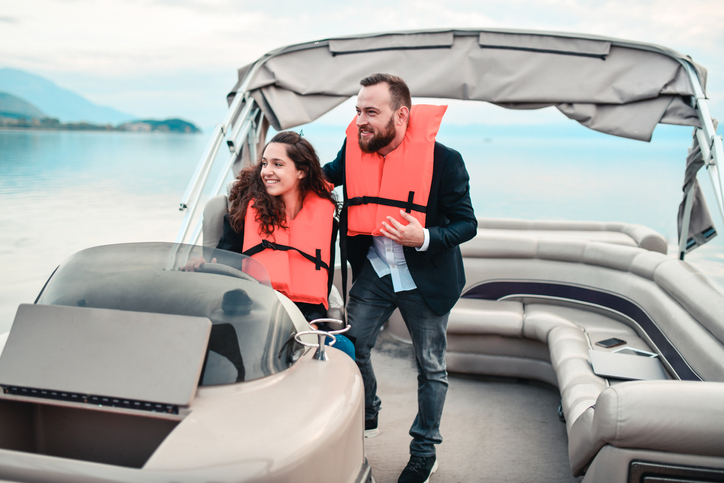Embarking on the journey of choosing your first boat is an exciting venture, filled with possibilities and adventures ahead. For those new to boating, the process can be both thrilling and daunting. This article aims to demystify the process, focusing on what new boaters need to know when choosing their first vessel. From understanding different types of boats to considering essential factors like budget and intended use, we’ll guide you through the key steps in making an informed decision.
Understanding Different Types of Boats
Finding the Right Fit for Your Needs
- Fishing Boats: Ideal for anglers, designed for stability, and equipped with features like rod holders and live wells.
- Bowriders: Versatile and family-friendly, great for recreational activities like swimming and water sports.
- Pontoon Boats: Known for their flat decks and spacious layouts, perfect for leisurely cruises and entertaining.
- Sailboats: For those interested in harnessing the wind. Requires more skill but offers a serene boating experience.
- Personal Watercraft (PWC): Small, agile, and fun, suitable for high-speed water adventures.
Consider Your Boating Lifestyle
Matching the Boat to Your Activities
- Fishing: If fishing is your primary activity, look for features that facilitate it, such as rod storage, fish finders, and trolling motors.
- Watersports: For waterskiing or wakeboarding, consider boats with powerful engines and towing capabilities.
- Cruising: For leisurely cruises, comfort is key. Look for ample seating, storage, and perhaps a cabin.
- Sailing: If you’re drawn to sailing, consider the size of the sailboat and the skill level required to operate it.
Budget Considerations
Balancing Cost and Quality
- Initial Cost: Factor in the purchase price of the boat and any necessary equipment.
- Maintenance and Upkeep: Regular maintenance is crucial and can vary significantly depending on the type of boat.
- Operational Costs: Include fuel, storage, insurance, and potential marina fees.
Size and Storage
Understanding Space Requirements
- Size: Larger boats offer more space and amenities but can be more challenging to handle and store.
- Storage: Consider where you will store the boat. Marina storage incurs fees, while home storage requires adequate space and a trailer.
New vs. Used Boats
Weighing Pros and Cons
- New Boats: Come with warranties and the latest features but are more expensive.
- Used Boats: More budget-friendly, but require thorough inspection for wear and tear.
Conducting Research and Inspections
Making an Informed Decision
- Research: Read reviews, join boating forums, and seek advice from experienced boaters.
- Inspection: If buying used, inspect the boat thoroughly or consider hiring a professional to do so.
Boating Safety and Education
Prioritizing Safety on the Water
- Safety Courses: Complete a boating safety course to understand the basics of boat operation and safety.
- Safety Gear: Ensure your boat is equipped with necessary safety gear, including life jackets, fire extinguishers, and flares.
Test Driving and Dealer Interactions
The Final Steps Before Purchase
- Test Drive: Always take the boat for a test drive to ensure it meets your expectations and feels right.
- Dealers and Sellers: Work with reputable dealers or sellers, and don’t hesitate to ask questions.
Choosing your first boat is a significant step in starting your boating adventure. What new boaters need to know is that the right boat should align with your lifestyle, budget, and the type of boating experiences you envision. Take your time, do your research, and embrace the process of finding the perfect boat that will open up a new world of adventures on the water. Happy boating!


Comments are closed.